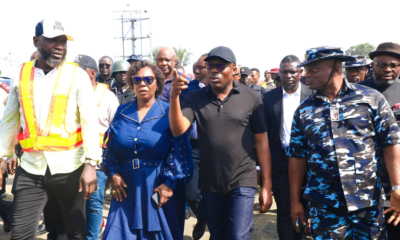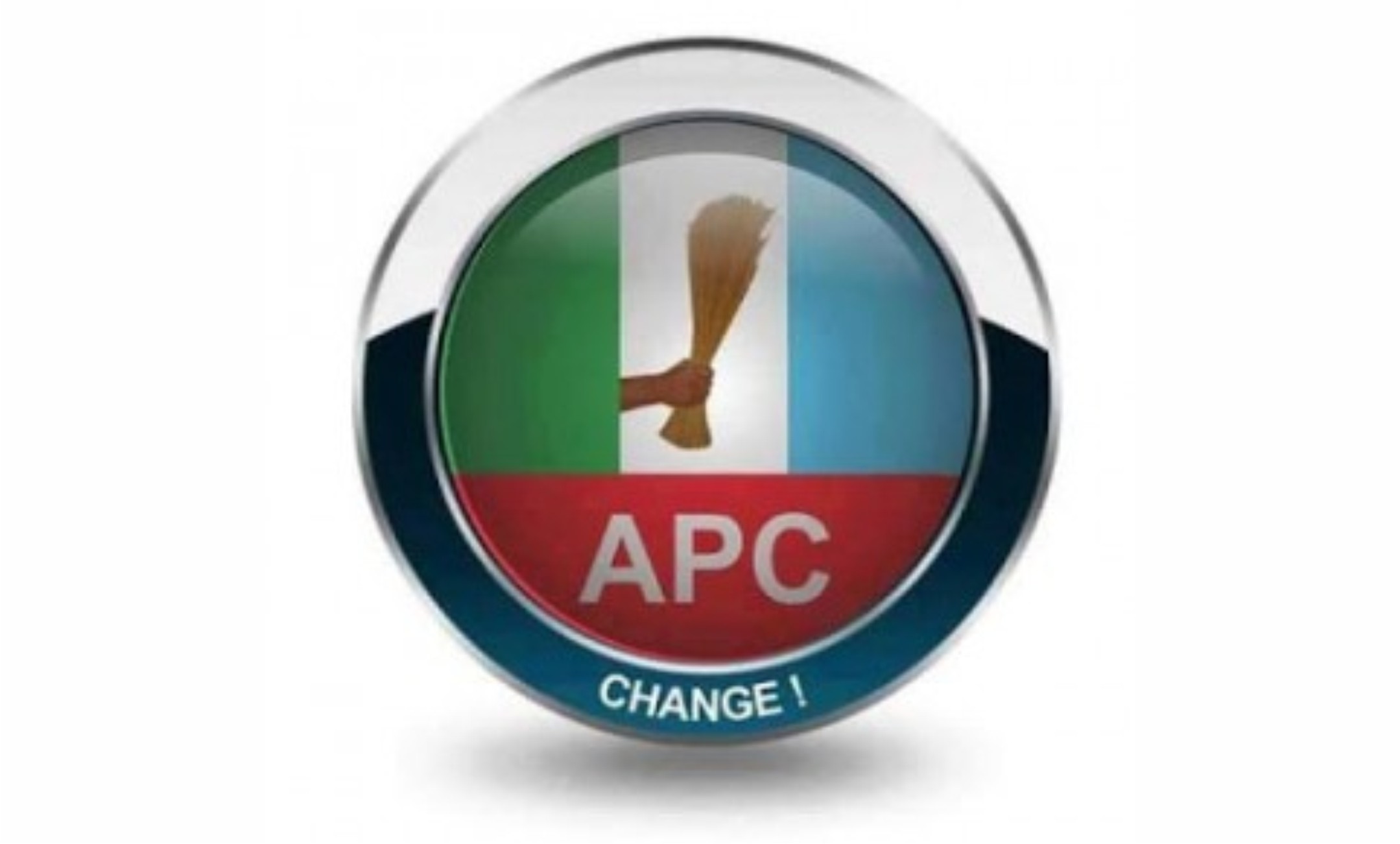Opinion
Understanding Nigerian Reading Culture
A lot has been said about the reading culture in Nigeria. The words most commonly associated with it are “poor”, “declining”, and “non-existent”, among others. Of these, although, “declining” seems closest to the truth, if one takes an objective look at the situation, one can say for sure that the reading culture among a majority of Nigerians is non-existent.
To reverse this trend, attempts have been made by both the government and a few organisations to revive this culture. One of these attempts gave birth to something fresh and unique…The Grove Reading Club, recently. A subsidiary of The Grove Library Services, the reading club opened in June 2008 with the endorsement and support of the likes of Elechi Amadi, Gabriel Okara, and a few government officials.
The reading club has adults and children as members. It is a real challenge attempting to change the mindset of adults, who are already set in their ways but in the meantime, the club is catching them young, and is making children to imbibe a reading culture that they can grow with.
The club has books that cater for members’ reading needs right from the cradle till middle age and beyond. To access their comprehension skills, the children do summaries of books, which are borrowed at no extra charge.
But one may simply ask: what makes the reading club necessary? For me, the reading culture referred to here, does not mean reading text books so that we can pass examinations at any level we find ourselves and improve our chances of getting better jobs and ultimately earn more money some day. No! In essence, people will read as long as it guarantees more money…sometime.
However, this is not what a reading culture is. A reading culture, to my thinking, is picking up a book, magazine, newspaper or an e-book and preferring to do this instead of watching a television programme that is not a ‘must-watch’. A reading culture is looking forward to a quiet time in your airy balcony or cosy sofa, curled up with a book or a magazine, and a bowl of pop corn. It is the longing to know what those printed words say, itching to know more and believing that every book or printed material has something to say or teach you.
When asked about the reason for the existence of the reading club, Mrs Eva Cookey had this to say: “I was concerned about the steep decline in the reading culture in Nigeria, and decided to make my own (little) contribution towards changing this. While positive impacts continue to reward our efforts, we have been pleasantly surprised by the opening up of further frontiers in the process. We believe that through these, a whole lot more can be done for the purposes of enlightenment, both for ourselves and for our children.”
Now, you may ask, what makes a reading club unique in furthering a sound reading culture? The answer is also simple. But I can take it this way! It used to be difficult to imagine children swarming into a library. A library? Yes!
Of course, there has to be something out of the usual. If textbooks and other books in the school curriculum are removed from school libraries, you probably would find there will be little or no compulsion to go to the library. This is because the children are so stuck on passing their examinations, that they see no need to go to the library for anything other than to pass their examinations.
Therefore, the reading club understands the easily bored nature of children and how much they hate intensive monitoring. Since the library is not a place most children love to go to on their own, The Grove Club has provided the cutting-edge, and if you like, the extra touch needed to make the idea of being in a library a very attractive one.
Interestingly, the club is not a place where children are made to sit at ‘unfriendly’ tables and hushed till they become introverted. There is no serious-looking, big-goggled librarian zooming in on them and eager to pounce at the slightest attempt at self-expression by the children. The children are allowed to express any and everything in them.
At scheduled times, they are allowed to compete at educational games, both board and word games. These are games that encourage the use and development of skills such as strategic planning, forecasting, financial management, rapid thinking, verbal reasoning, team-work, among others. All these are attitudes that the children need to prepare for a properly adjusted adulthood. The children enjoy storytelling and at the same time, improve their imagination and listening skills. The club goes further to provide visual learning materials that allow the children compete comfortably among themselves.
A primary five pupil, Victory Igbokwe had this to say about the club: “learning is fun at the club, and I am happy to have learnt to play board games like Scrabble, Chess and Monopoly.” Chikem Elenwo, another primary five pupil, summed up her experience in these words: “I love the amount of books I am able to read in the club. I am bolder and glad to have improved in my spelling.”
While these children interact with their peers from different backgrounds and cultures, the management and staff of the club pay rapt attention and notice certain traits. Some traits are interesting, some are outright alarming, and the club works to correct certain disturbing traits with the knowledge and collaboration of the children’s parents.
For me, it does not matter how long it takes but I believe that with friendly ‘chat-sessions’ with a child, an improvement, if not elimination of such traits, is achieved. In her own estimation, Mrs Vivian Stowe, a parent of one of the children at the club, enthused: “I must say the reading club is amazing for the token paid. My son has improved tremendously in reading and outspokenness. I am very happy with the club, and I have made up my mind never to withdraw my child. I encourage other parents to follow suit because they will benefit greatly from it.” For another parent, Mrs Rachael Ogbu, “the reading club has helped my children cultivate the habit of reading, whether at home or at school. My daughter has evolved socially.”
Even with these testimonies, some people still would want to ask: why read? Some may say, I have read enough, why do I need to keep reading? For these people, I have a set of advise for you: The benefits have been repeated over and over again. You develop an expansive vocabulary, become more knowledgeable and can confidently discuss a variety of issues in public.
In fact, leisure reading is also therapeutic, and the list could go on and on. Methinks every penny and every second invested and or spent in learning will pay back at a rate we never dreamed of. This is why the cultivation of a reading culture through the instrumentality of a well-organised club is both financially and mentally rewarding. It is even more so when it is realised that every knowledge gained is an asset to the beneficiary. I think, and suggest that all children, men and women, should join a reading club today. It will help the nation grow rapidly tomorrow.
Cookey resides in Port Harcourt.
Adata Cookey
Opinion
Other Sides In Junior Pope’s Death

The tragic boat mishap of Wednesday, April 10, 2024, which claimed the lives of popular Nollywood actor, Mr John Paul Obumneme Odonwodo, popularly known as Junior Pope, and four others, has sent shock-waves across the Nigerian movie industry, and set the social media buzzing with reactions.
A contingent of 12 movie crew members had set out for a boat journey from the River Niger Cable point, a waterside jetty at Asaba in Delta State, to cross to the other side of River Niger, into Anam, a riverine community in Anambra State, for the shooting of a movie set titled ‘Another side of Life’ produced by Adanma Luke. Unfortunately, a series of avoidable events culminated the journey into an ill-fated expedition that sent fives lives to ‘the other side of life.’ The incident made the movie’s eventual ban a nullity, having played-out its symbolic meanings in real life while in the making, rather than on envisaged screens.
An avoidable incident, it exposed our society’s casual attitudes towards marine and general safety, as well as our endemic superstitions, while telling, on several flaps, other side tales of reality in the accounts of what transpired during the production, or rather, play of Adanma’s ‘Another side of Life.’
While veteran actor and Senior Adviser on Military Relations to the President of Actors’ Guild of Nigeria, Mr Steve Eboh, claimed he missed joining the ill-fated boat because he arrived too early before the crew, and had to go back, the producer, Adanma Luke, claimed she missed it because she came too late.
A journey’s jolly take-off from Asaba, Delta state, which ended tragically in its return from the other side in Anambra State, proved to be a rascally journey that showed the other side of rascality, even as T. C. Okoye claimed that pre-performing of obeisance to some marine spirits saved his life. But it was T. C. Okoye who had to hang unto a boat’s anchor in the face of death, rather than rely on the powers of the spirits he had appeased with Fanta, to await rescue from mortal men – sensible men, whose advise that one needs wear life jack during marine journeys – he had forsook, yet gave glory to his rituals after rescue.
Conversely, one may flip the flap to consider the other side of T. C. Okoye’s rituals to ruminate on other possibilities. Could the ringing of bells, spraying of money and snacks, and pouring of Fanta, have evoked the anger of the ‘marine spirits’ as rumoured, or distracted the boat driver, to the point of accident? And as reported by The Punch, what’s the significance of T. C. Okoye ‘dashing’ ritual money to innocent children whom circumstance made to be by the riverside?
Also, the argument by Mr Steve Eboh, that “If the star actors in that boat had wanted to wear life jackets, they would have been given the jackets” holds no ground, because the guild, as well as all the marine transport stakeholders, should have enforced strict safety compliance by all voyagers. It is therefore commendable that the Anambra State Commissioner of Police, Aderemi Adeoye, has ordered exhaustive investigations into the matter to determine criminal liability of all persons involved.
However, in the melee of pandemonium that accompanied rescue efforts, Nollywood celebrities, our society’s supposed role models, prioritized superstitious rescusitation over sure medical practice, rushing victims between spiritualists and hospitals, until a ‘pope’ whose work and journey had bound with the superstitious, died amidst superstition. Indeed, it’s during crises, when people care less about ‘packaging,’ that truth and the real personality of humans stand bare and naked.
While medical personnel who got their chance late had certified Jnr Pope dead, our star-persons held unto their spiritual advisers who claimed his spirit coming back to life, up until reality finally dawned that pope’s spirit has permanently crossed to the other side of life.
Regrettably, the reality has not fully dawned, otherwise three corpses shouldn’t have been buried by the riverside as dictated by spiritualists, and Jnr Pope’s family shouldn’t be worried about what would happen, as rumoured threatened of his three children, if his corpse is not buried by the riverside. However, it appears that having encountered the influence of a frontline celebrity, the spirits have turned capricious by bending divinely demands to accepting two cows, as rumoured, in exchange for Jnr Pope’s corpse being buried elsewhere.
According to the Anambra State Police Public Relations Officer, SP Tochukwu Ikenga, a team of rescuers comprising men of the Anambra State Marine Police Command, the National Inland Waterways Authority (NIWA) and the Maritime Workers Union of Nigeria, with the aid of fisher men, rescued seven persons alive to the Anambra side, while two retrieved corpses were sent across the other side, to the Delta State Marine Police Command jetty where Nollywood officials stood waiting. Of other three victims, two corpses were rescued next day, while a third was thrown out by river tides, all of whom; Abigail Fredrick (Vice Chairman of Costumer Designers Guild of Nigeria, and Akwa-Ibom State-born make-up artist), Precious Oforum (Sound engineer) and Joseph Anointing (Gaffer), have since been buried by the riverside, according to local belief.
However, what the police PRO’s statement didn’t reveal is if Jnr Pope’s corpse was sent to the other side in Delta after all the back and forth between spiritualists and medical personnel within Anambra, or if it was sent straight upon rescue to Delta state, but mysteriously found its way back to Anam, on the Anambra side.
It’s unfortunate that Nollywood which set out in its early days to expose superstitious beliefs and practices in our societies, in the hopes of enlightening the minds of the masses, and to curb the manace, has made many believe it’s rather reinforcing superstition in the ways it condicts the movie industry business.
Members of the showbiz in general, now appear to be key protagonists of superstition to the point that, being perceived as role models, so many youths have been drawn to lives of unrealistic dreams and materialism, which often get pursued through ritualism, with its attendant crimes.
Joseph Nwankwo
Opinion
The Value Of Books And Reading
The quality, quantity and diversity of books produced by a society are important indicators of that society’s level of development. . . .”–Valdehusa (1985).
April 23 of every year is marked around the world as ‘World Book and Copyright Day.’ Also known as ‘International Day of The Book,’ it is a Day set aside by the United Nations Educational, Scientific and Cultural Organisation (UNESCO), to promote reading, publishing and copyright. The Day aims to change lives through a love of books and shared reading. The theme for the 2024 ‘World Book Day’ is: “Read Your Way.” This year’s theme calls on everyone to let go of pressure and expectations, giving children a choice – and a chance to enjoy reading.
According to Audrey Azoulay, Director-General of UNESCO: “Books have the unique ability to entertain and to teach. They are at once a means of exploring realms beyond our personal experience through exposure to different authors, universes and cultures, and a means of accessing the deepest recesses of our inner selves.” Therefore, the power of books should be leveraged to combat isolation, reinforce ties between people, and expand our horizons, while stimulating our minds and creativity. It is critical to take the time to read on our own, or with our children.
Did you know that The Bible stands out as the most widely translated and distributed book worldwide? Yes, the Bible is by far the most widely translated and distributed book! Its wisdom has reached and helped more people than any other book or publication. 96.5 percent of the world’s population has access to the Bible. The Bible is available (in whole or in part) in over 3,300 languages, and the estimated number of copies of the Bible produced is 5billion, far more than any other book in history. Which other book(s) do you enjoy or have you enjoyed reading? As for me, one book I am currently enjoying reading is a 400 – 500 page healthcare handbook titled, Where there is no doctor, authored by David Werner. It is a very valuable healthcare handbook that I have found to be very very beneficial! In fact, this healthcare handbook has been fondly described by some as “the ‘Bible’ of health education,” and I strongly recommend that every family should have a copy of this book at home. Apart from this book, I also enjoy reading for pleasure children’s books, such as those I have found on booksmart.worldreader.org and www.africanstorybook.org. What about you? What books have you enjoyed or do you enjoy reading? Do you know about the book industry? There are three major sectors of the book industry. They are: publishers, booksellers and libraries.
Book publishing is channelled towards promoting learning and expanding knowledge. In a strict sense, book publishing starts from the point of conceptualisation of the ideas for the book by the author, and ends at the very last stage – the end-user (the reader). The history of book publishing in Nigeria can be traced to the establishment of the very first publishing press in Calabar, in 1846, by Rev. Hope Waddel of the Presbyterian Church of Scotland Mission. The press was used to print Bible lessons and later arithmetic books for schools.
In 1854, another Missionary based in Abeokuta, Rev. Henry Townsend of the Church Missionary Society (CMS), established a Press. Five years later (1859), he used it to print the very first newspaper in Nigeria – ‘Iwe Irohin.’ Thereafter, notable Nigerians like Herbert Macaulay established the first indigenous newspaper in 1926, called Lagos Daily News. Also, in the same year, Daily Times made its debut. In 1949, Oxford University Press (OUP) floated a sales outlet in Nigeria. This action attracted many foreign-based publishing firms to Nigeria, such as Macmillan, Longman and others. The first published book in Nigeria by OUP was released in 1963, when its local branch published ‘Ijala Ere Ode’, a Yoruba poetry genre by Oladiipo Yemitan. Aside from the foreign companies, many other home-based publishing houses were architected by indigenous entrepreneurs. The book publishing industry in Nigeria has continued to enjoy drastic growth ever since.
However, in the last few decades, the Nigerian indigenous book publishing industry has experienced a downturn due to numerous challenges facing the industry, including: book piracy, proliferation of unqualified author -.publishers, lack of capital, and inability to provide adequate numbers of high-quality books.
Other challenges include: poor reading culture, infrastructural decay, dearth of expertise, incessant rancour among the major stakeholders, and so forth.
Therefore, here are some suggestions for developing our book publishing industry in Nigeria: Stakeholders such as government, publishers, authors, regulators, booksellers, libraries, and readers should cooperate among themselves and contribute their quota immensely towards the development of a virile book publishing industry. Private investors such as banks, finance houses and influential individuals should participate, especially in terms of massive capital injection.
Ighakpe writes in from FESTAC Town, Lagos.
Daniel Ighakpe
Opinion
Let The Poor Breathe
In the history of our nation, only petroleum products have suffered more incessant increments in prices than electricity supply in all public products and services. Unfortunately, those are the two main things that impact mostly on our lives and national economy. While the increment in petroleum products’ prices is always attributed to the price of crude oil at the international market and the need to curb the scarcity by encouraging the supply, the increment in the electricity tariff has never had any justifiable reason and no service improvement afterwards. In fact, the electricity supply has gone far worse now that the tariff has gone up by over 300 percent. One of the underlying reasons for the planned electricity subsidy removal as unconsciously relayed by the Minister of Power on TVC News is the sabotage of the system by those collecting the subsidy money to maintain the assets. He said: “These are assets that we spend the country’s money on, and our brothers deliberately sabotage them. So, you can see that some people are hiding somewhere that do not want this sector to work”.
Just as the petroleum subsidy must go because the government is too impotent to handle the petroleum subsidy racketeers, the electricity subsidy has to also go at the expense of the poor masses and no one has been prosecuted for it.
When the oligarchs rob us blind, the poor masses are made to pay. The only tool that seems to be at the disposal of this government for the combat of economic challenges brought by the corruption of the political elites is to make the poor masses suffer deprivations.
No doubt, stopping the monkeys from the banana plantation is a Herculean task. But those with their thinking caps on will not need to destroy the banana plantation to ward off the monkeys. The Federal Government has taken several decisions in the last one year that are akin to milking the debilitated cow to feed the virile buffalo. The electricity tariff now has to go up to make more money for the oligarchs that sold our collective heritage to themselves and have been taking money from us for next-to-nothing service delivery.In order to win the supports of the poor masses of Nigeria, the tariff was classified and made to seem like it isn’t going to affect the poor, while the poor will invariably be the worse for it. Most of those on Band A electricity tariff, who are to be paying very exorbitantly for electricity are companies producing most of our consumables and utility items. With the high cost of electricity, the production cost will go high and consequently, the cost of the products. By the time the effects of the new electricity tariffs take full manifestation, almost everything that can make life meaningful will be beyond the purchasing powers of most Nigerians.
I can not help but to wonder what exactly is left for us to benefit as citizens of this country. Nigeria is rapidly moving towards a capitalist nation, where everything is commercialised and profit at the expense of the citizens is the priority. Medicare and even public education are now being run for profit. The government goes about with the shenanigans of education for all, while it is making education unaffordable to most Nigerians. Even the students’ loan, as badly conceived as it is, is also with interest. Those who have been in power since our democratic dispensation belong to that generation of Nigerians that the nation had been very benevolent to. They were educated for free, got paid salaries as students and given jobs on a platter after graduation. This generation of people got everything from Nigeria and unfortunately have refused to give anything back. They have not only been ungrateful to Nigeria; they have also systematically run the country aground. What a waste of investment Nigeria has made in them! While some countries in this same Africa hardly experience power outage in a year, our own B and A category would at best experience four hours of power outage in a day. These are the ruins they have led our country to in 21st century.
The timing and manner that these anti-welfare policies were introduced are indicative of lack of concern for the citizens of this country. A lot of Nigerians have lost their lives in choking circumstances. Please, let the poor breathe! While trying to rebuild Nigeria, the poor masses should not be made to feel like the eggs in the preparation of omelette. It is very obvious that you do not care about how many eggs are broken, so long as you can have the hen.
Abdulrasheed Rabana
Rabana, is a public affairs analyst .
-
News4 days ago
German Police Arrest 11 Nigerians For Dating Scam
-
Opinion4 days ago
Let The Poor Breathe
-

 Nation1 day ago
Nation1 day agoSDP National Chairman Lauds FG’s Efforts To Tackle Insecurity
-

 Breaking News23 hours ago
Breaking News23 hours agoTanker Inferno: We’re Saddened By Extent Of Carnage -Fubara
-

 Politics21 hours ago
Politics21 hours agoAPC Calls For Oyo LG Poll Cancellation
-

 News4 days ago
News4 days agoCourt Vacates Arrest Warrant Against Ehie, Five Others
-
Nation4 days ago
Monarch Hails Fubara Over Road Project
-

 Rivers1 day ago
Rivers1 day agoPolice Arrest Vigilante Commander, Others Over Robbery In Rivers

